Software to recognize terrorists. Systems to protect transport companies. Technology to combat piracy off the coast of Somalia. Cybersecurity products and services to keep criminals and spies out of computers. At first glance, the security show in Essen, Germany was just another trade fair like so many others Marijn Hoijtink had seen.
Joining arms manufacturers at the show were European Union policy makers. Employees of the Directorate General Enterprise and Industry manned a booth there in 2012, where companies could receive information on EU research grants. And not far away, the European Commission was holding a small conference on public-private partnerships.
Photo by Anouk van Kalmthout for De Correspondent

And of course there were the usual speeches by defense industry big shots, politicians, and senior EU officials. Each one emphasized the need to use technology to ensure Europe’s safety. It was the same story Hoijtink heard at every show: borders are dissolving, the world has grown complex, we’re being threatened by new dangers, so we must invest more in civilian security products and services.
So far, business as usual.
But one of the panels caught Hoijtink’s attention. The panel moderator asked a few senior officials a striking question: What are you doing to address an attack from outer space?
“It was an actual, earnest question,” Hoijtink says. “And very earnest people spent twenty to thirty minutes discussing it.”
The panel members meant something like a satellite attack?
“No, an attack by actual aliens.”
And did they have anything we could use to fight aliens?
“But of course. These gentlemen had just the thing for it.”
Government and industry are obsessed with security
In the past year we’ve spoken with Hoijtink a few times as part of our investigation into the European security industry. Hoijtink, who is an associate professor at VU Amsterdam, spent four years sinking her teeth into the subject. The result was her doctoral dissertation, Securing the European “Homeland”: Profit, Risk, Authority.
To write it, she spent years poring over policy papers, speaking with EU officials and arms manufacturers, and visiting dozens of events where those two groups came together – including trade shows, like the one in Essen.
Photo by Anouk van Kalmthout for De Correspondent

In her dissertation, she draws three conclusions. The first is that European authorities have been seduced by a “speculative security discourse.” Many discussions of security and potential solutions address what might happen. The example about aliens demonstrates just how far that speculation can go.
“It’s a way to create urgency and demand,” says Hoijtink. “This kind of speculation ensures that we start thinking about everything we have at our disposal. Danger threatens from all sides these days, and it’s increasingly harder to combat. Yet we have to do something about it, and for that we need technology.”
Photo by Anouk van Kalmthout

Companies – and this is her second conclusion – continually reinforce this picture of a rapidly changing world and the need for new technology to solve societal problems. In all their communications, including their contributions to legislative texts and their advertising, they play on this speculative danger.
What’s more, major arms manufacturers and technology companies have built up a strong and institutionalized lobby in the European Union. They’re sitting at the table when security and innovation policy is being made, which enables them to make their mark on security policy. They also participate in discussions on where the EU’s investments should go.
And her third conclusion? Hoijtink sees a “marketization” of security. The hope is that the products the arms industry makes can be used on both the battlefield and for civilian purposes. Drones, for example, have become an indispensable element on the battlefield, but police forces and tax authorities can also use them for tracking and enforcement. And so the European Union is conducting industrial politics by awarding grants and contracts and by easing regulations. There’s a reason the European Commission put the development of a European civilian security industry in the hands of the Directorate General Enterprise and Industry and not a Directorate General in charge of security or migration.
“A great deal of EU policy isn’t focused on security or gathering information on how insecure we actually are now,” says Hoijtink. “It’s focused more on how we can make that market succeed.”
Technology can’t fix everything
But society has gotten less safe, hasn’t it?
“We’ve seen a number of attacks in the past year, absolutely. If we look at the figures, the number of people killed in terrorist attacks has gone up. But while we’re looking at figures: the number of deaths from terrorist attacks is relatively low compared with traffic-related fatalities.
“That may seem like a silly example, but it shows that the money we’re now investing in the security market could also be used for other things. No one can guarantee us 100% protection from terrorists or other extraordinary threats. So ultimately these are political choices. And when you deconstruct that, you see that sometimes very unrealistic and illogical assumptions are being made.”
Name one such assumption.
“Take the Group of Personalities report on defense research presented in February 2016. That group is filled with defense company CEOs and delegates from the European Commission and European Parliament.”
Photo by Anouk van Kalmthout

That’s in 2016. But weren’t these kinds of reports written by CEOs a decade or more ago, too?
“Yes. Around 1996, the European Commission tried to create an internal market for defense equipment. The Cold War was over; defense budgets were starting to drop, and the EU single market was in its heyday. But the member states were unwilling, because security impinges on national sovereignty.
“After the September 11 attacks in 2001 the proposal was revived, but in a new form. This time it wasn’t about defense equipment, but about defense-related technology. It was ultimately presented as civilian security, a term that was coined around 2003 to draw member states into a narrative and convince them the EU had a role to play here.”
We can travel more safely; borders are being monitored. What’s the problem?
“I’m critical of the idea that technology can solve everything. That same technology also creates a kind of lock-in effect. Once you start buying tech, you can never go back. There’s a rat race underway in which we keep buying the latest technology, though we don’t know for sure whether it’s effective or whether a given technological solution is the best one. And it’s incredibly expensive to boot.
“If you look at the data systems in Europe, for example, then we already have a whole lot of them that check people at the border. EURODAC, SIS I, SIS II, FIS, EUROSUR, all of which contain information on international travelers. The question is: do they work? Don’t we have too much data? Or should we use the data we have differently? Because now we keep adding in new data and systems.
“After Charlie Hebdo, where the attackers were already in France, the reaction was ‘we need to add in PNR data,’ even though the attackers weren’t on a plane. And the data that was available on these attackers wasn’t shared. That indicates that new data and new technology aren’t necessarily a solution.”
And so we’ll need to invest in other solutions
So it’s better to invest in people than in technology?
“It’s at any rate better to look at the interplay between people and technology. Do we always have to have a high-tech gadget? My favorite EU research project is SNIFFLES. That one’s developing technologies to imitate dogs.”
To identify trucks used for human trafficking?
“To develop a device that can detect different explosives, or drugs, or so on.”
And you’re saying that dogs can already do that?
“Yes. I wonder if that money isn’t better spent on something else.”
You say that companies play an important role in creating the demand for these kinds of products. You even call them, along with policy makers, the “managers of unease,” a term coined by the French sociologist Didier Bigo. Tell us more.
“It’s about the meaning we assign to security and insecurity. That’s a construct. Politicians play a role there, and academics and the media, and also companies. In the past, we’ve examined the role of politicians and the media as the brokers of fear. But now companies have a hand in that, too.”
How so? By writing reports?
“Yes, they write reports, brochures, and white papers, and they also propose research projects. There are all kinds of meetings, panels, stakeholder workshops, trade shows, the Group of Personalities. Attend one, and you come away with the idea that we’re at war. That’s highly debatable. But the role the European Commission plays is also important. Companies also write reports at the Commission’s request.”
So do you think the Commission and the companies are thick as thieves, then?
“Oh, they have their differences, too. The Commission often says that companies only care about selling technology and making a profit. The companies think the Commission is too cumbersome and too slow. But they’ve made common cause in promoting the security market. And that’s given rise to an important network at the European level.”
Who’s in that network?
“The major arms manufacturers who have lobbies in Brussels. Companies like Smiths Detection, for example, and Thales, Finmeccanica. And also other lobbying groups, such as the EOS and the ASD. But you’ve also got groups of academics who have since joined the conversation.”
The fact that this network exists isn’t problematic, but we have to be aware of that trend: is that your message?
“Yes. I think we have multiple groups like that in Brussels.”
Pharma, climate change, and so on.
“Exactly. But I think it’s interesting that this is a fairly recent group, and we shouldn’t avoid political questions. It’s not true that we automatically need to invest more here because we feel less safe. No, it’s still a political question how far we want to go. And to what degree we want to stop investing in other solutions.”
This piece is part of Security for Sale – investigative reporting by De Correspondent on Europe’s security industry in partnership with 22 journalists from 11 European countries. Security for Sale is made possible by Journalismfund.eu
—Translated from Dutch by Grayson Morris and Erica Moore
More from De Correspondent:

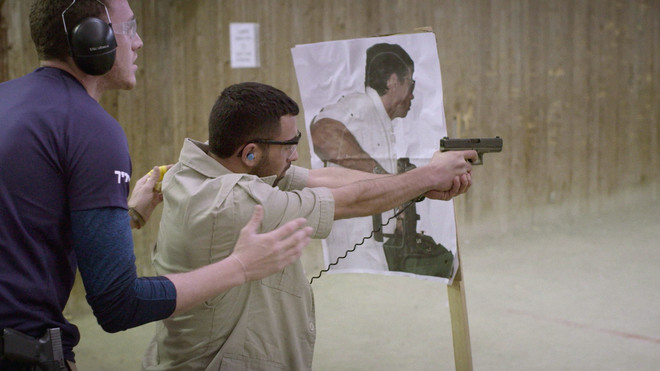 Israel sells Europe more than weapons. It also exports fear
Many an innovative weapon and security device got its start in Israel. But as I travelled through the country to make the documentary “State of Alert, Israel style” for VPRO Backlight, I saw what Israel is exporting along with its security industry: a mentality of conflict and fear.
Israel sells Europe more than weapons. It also exports fear
Many an innovative weapon and security device got its start in Israel. But as I travelled through the country to make the documentary “State of Alert, Israel style” for VPRO Backlight, I saw what Israel is exporting along with its security industry: a mentality of conflict and fear.
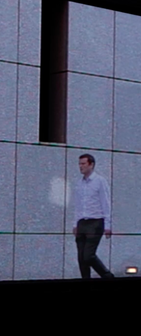
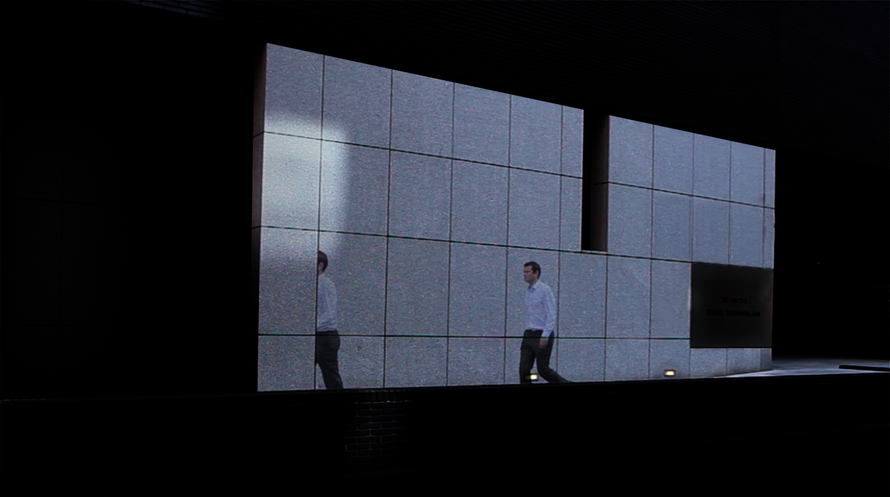 Security for Sale. The price we pay to protect Europeans
The EU has deep pockets when it comes to security. But who reaps the benefits of generous subsidies? The public or the security industry itself? For over a year now, we've worked with 22 journalists in 11 EU countries to investigate the European security sector. The result is Security for Sale, which brings you up to speed on this burgeoning sector.
Security for Sale. The price we pay to protect Europeans
The EU has deep pockets when it comes to security. But who reaps the benefits of generous subsidies? The public or the security industry itself? For over a year now, we've worked with 22 journalists in 11 EU countries to investigate the European security sector. The result is Security for Sale, which brings you up to speed on this burgeoning sector.
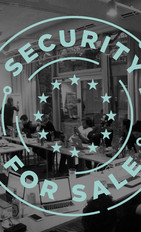
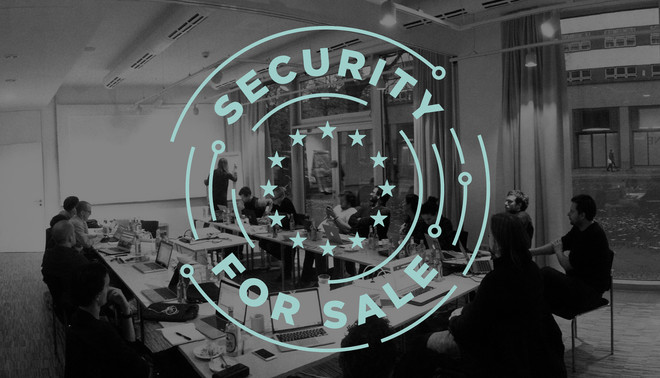 Behind the scenes at Security for Sale: how we worked with 22 journalists in 11 countries
We’re publishing a series of articles on Europe’s security industry. The stories are reported by a consortium of 22 journalists led by The Correspondent. As part of the project, we explain why we chose to work in a team, what it’s been like, and why it’s an important step forward for journalism.
Behind the scenes at Security for Sale: how we worked with 22 journalists in 11 countries
We’re publishing a series of articles on Europe’s security industry. The stories are reported by a consortium of 22 journalists led by The Correspondent. As part of the project, we explain why we chose to work in a team, what it’s been like, and why it’s an important step forward for journalism.






